比尔盖茨夏季书单:两位杰出经济学家对热点问题的解读
IT之家5月22日消息 今日,比尔盖茨(Bill Gates)通过比尔·盖茨官方公众号分享了它的2020夏季书单,推荐了一本由阿比吉特·班纳吉(美)与埃斯特·迪弗洛(法)所著名为《好的经济学》的书。
IT之家了解到,比尔盖茨认为,《好的经济学》是《你当像鸟儿飞向你的山》《乡下人的悲歌》及《扫地出门》等书的有益补充,这些书生动描绘了在美国出身贫寒是一种怎样的体验。班纳吉与迪弗洛使用大量数据来洞悉全局,让我们得以通过更广阔的视角观察这些人的动因。
以下为比尔盖茨书评全文:
Did you know that there’s no such thing as the Nobel Prize for Economics? The economics award that most people refer as the Nobel is an add-on, the product of a 1968 gift from a big bank celebrating its 300th anniversary. That’s why the name of the award is the Sveriges Riksbank Prize in Economic Sciences in Memory of Alfred Nobel.
你知道其实并没有所谓的“诺贝尔经济学奖”吗?多数人所说的“诺贝尔”经济学奖是另加上去的,由一家大银行为庆祝其成立300周年于1968年捐赠设立。这就是为什么该奖项的名称其实是“瑞典国家银行纪念阿尔弗雷德·诺贝尔经济学奖”。
The economics prize differs from the official Nobel Prizes in another way: It honors a social science rather than a natural science. Economics is not grounded in natural laws like Newton’s law of gravitation. It’s rooted in human nature, which is notoriously hard to predict.
该经济学奖有别于官方的诺贝尔奖之处还在于:它用以表彰社会科学而非自然科学。经济学并不像牛顿万有引力定律那样以自然法则为基础。它根植于人性,而人性的难以预测众所周知。
I think about this every time I hear about a new book on economics and consider adding it to my bookbag. I have no trouble finding books by smart economists. But I do sometimes worry that those economists won’t have appropriate humility about what economic methods can and cannot teach us.
每当听到一本经济学的新书并考虑将其收入囊中时,我都会想到这一点。找到聪明经济学家的著作对我来说并不难。但我有时确实会担心,这些经济学家不会对经济学方法能做什么和不能做什么保留适当的谦虚。
Two economists who are honest about the limits of economics and don’t oversimplify are the husband-and-wife team of Abhijit Banerjee and Esther Duflo. They’re the couple who started MIT’s Abdul Latif Jameel Poverty Action Lab (J-PAL). I have always admired their rigorous, experimental approach to assessing the merits of different approaches to fighting poverty, and I loved their first book, Poor Economics (2011). Therefore, I was pleased when I learned they were going to publish a second book, Good Economics for Tough Times. Two weeks before the book hit the bookshelves, they won the 2019 Sveriges Riksbank Prize in Economic Sciences in Memory of Alfred Nobel, along with their colleague Michael Kremer.
由阿比吉特·班纳吉和埃斯特·迪弗洛两位经济学家组成的夫妻档,对于经济学的局限性既坦诚,又不过分简单化。他们二人在麻省理工学院共同创建了“贫困行动实验室”(J-PAL)。我一直很欣赏他们以严谨、实验性的方法来评估不同扶贫方式的优点,我也喜欢他们的第一本书《贫穷的本质》( 2011年出版)。因此,当得知他们要出版第二本书《好的经济学》时,我很开心。在这本书上架前两周,他们与同事迈克尔·克雷默一同获得了2019年瑞典国家银行纪念阿尔弗雷德·诺贝尔经济学奖。
Just like the couple’s first book, their new one is easily accessible for readers who don’t have a degree in economics. And they acknowledge at the very beginning, “We, the economists, are often too wrapped up in our models and our methods and sometimes forget where science ends and ideology begins.”
就像这对夫妇的第一本书一样,他们的新书对于没学过经济学的读者而言同样简明易懂。他们在一开始就表示:“我们这些经济学家,常常过度专注于自己的模型和方法,有时会忘记哪里是科学的尽头和意识形态的开启。”
In one important respect, the new book is a significant departure from their previous one. Poor Economics, as its name suggests, focused on poor countries. Good Economics for Tough Times focuses instead on the policy debates that are getting so much attention in wealthy countries. (Obviously, since it was written long before the coronavirus pandemic, it doesn’t touch on that issue.) Although it’s clear that their real expertise is microeconomics (the study of how individual people make decisions) rather than macroeconomics (the study of how an overall economy behaves), Banerjee and Duflo are good at assembling and explaining the facts behind contentious issues like immigration, inequality, and trade.
在一个重要的方面,这本新书跟前一本截然不同。《贫穷的本质》,顾名思义聚焦在贫穷国家。与之相反,《好的经济学》关注的是富裕国家中备受关注的政策辩论(很显然,由于此书完成于新冠疫情暴发之前,故未涉及此问题)。尽管两位作者真正的专业领域是微观经济学(研究个人如何做选择)而不是宏观经济学(研究整个经济体如何表现),班纳吉与迪弗洛善于整合和解释争议事件背后的事实,例如移民、不平等和贸易等。
I’ll give you an example from their discussion of immigration. It turns out that the field of economics has more clarity than I realized about the effect of immigration on jobs.
我会给你一个他们探讨移民问题的例子。原来从经济学解读移民对就业的影响,可以比我想象中的要清楚许多。
You have probably heard the argument that when immigrants who are willing to work for low pay show up in a community, they almost inevitably—based on the rules of supply and demand—trigger the reduction of wages for some percentage of the local population. But Good Economics for Tough Times shows how that concern is misplaced. “There’s no credible evidence that even relatively large inflows of low-skilled migrants hurt the local population,” Banerjee and Duflo write. “This has a lot to do with the peculiar nature of the labor market. Very little about it fits the standard story about supply and demand.”
你可能听过这样一种论点:基于供需关系原则,一个社区中愿意低薪工作的移民会不可避免地导致一定比例的当地居民收入的削减。然而,《好的经济学》展示了这种担忧是如何错误地产生的。“并没有可靠的证据表明,低技术移民的大量涌入会对当地居民造成伤害。”班纳吉与迪弗洛在书中写道,“这与劳动力市场的特性有很大关系。在劳动力市场上,几乎很少有符合标准供需关系的情况。”
Why doesn’t the labor market fit the standard story? Banerjee and Duflo show that migrants are not just workers; they’re also consumers. “The newcomers spend money: they go to restaurants, they get haircuts, they go shopping. This creates jobs, and mostly jobs for other low-skilled people.” Another reason is that an influx of new laborers reduces companies’ incentive to automate their operations. “The promise of a reliable supply of low-wage workers makes it less attractive to adopt labor-saving technologies.”
为什么劳动力市场不符合标准的供需关系?班纳吉与迪弗洛指出,移民不仅是劳动者,而且是消费者。“这些新移民会消费:他们去餐馆、去理发、去购物。消费会创造新的就业,并且其中绝大部分是提供给其他低技术人群的。”另一个原因在于,新劳工的涌入降低了企业实现自动化的积极性。“有了低薪工人的可靠供应保证,采用减少劳动力的技术手段便少了吸引力。”
In contrast with immigration, economists do not have clear data or conclusions when it comes to what drives economic growth. As I noted in my reviews of Robert Gordon’s great book The Rise and Fall of American Growth and Vaclav Smil’s masterpiece Growth, I have a lot of optimism about the ways artificial intelligence and other digital tools will accelerate learning, productivity, and innovation. But that said, Banerjee and Duflo make a powerful case that it’s just about impossible to make specific predictions in this area. “Of all the things economists have tried (and mostly failed) to predict, growth is one area where we have been particularly pathetic.”
与移民问题形成鲜明对比的是,在谈及推动经济增长的因素时,经济学家们并没有明确的数据或结论。正如我之前在关于罗伯特·戈登的精彩著作《美国增长的起落》以及瓦科拉夫·斯米尔的杰作《增长》(Growth,中文名暂译)的评论中所提到,我非常乐观地相信人工智能及其它数字工具,将加快学习、生产力与创新。话虽如此,班纳吉与迪弗洛提出了有力的观点,认为在这一领域做出具体的预测几乎是不可能的。“在经济学家们试图预测(又多以失败告终)的所有事情中,对于增长的预测尤其令人失望。”
Some economists argue that there’s at least one sure-fire way to boost an economy: cutting taxes. But Banerjee and Duflo show that even the iconic version of these cuts, the major tax reform enacted under Ronald Reagan, did little if anything to accelerate growth. “There is no evidence the Reagan tax cuts, or the Clinton top marginal rate increase, or the Bush tax cuts did anything to change the long-run growth rate,” Banerjee and Duflo write.
一些经济学家认为,至少有一种万无一失的方法来刺激经济:减税。但是班纳吉与迪弗洛表示,即使是减税政策的标杆——罗纳德·里根任期内颁布的重大税制改革——也几乎没有起到刺激经济增长的作用。“没有证据表明,里根的减税政策、克林顿的最高边际税率提高政策和布什的减税政策,对于经济的长期增长率有任何改变。”班纳吉与迪弗洛写道。
But don’t high taxes on wealthy people like me reduce our incentive to work hard and create new jobs? The answer is no. Banerjee and Duflo found no evidence that people at the top of the income distribution change their behavior in ways that affect the overall rate of economic growth. “In a policy world that has mostly abandoned reason … let’s be clear: Tax cuts for the wealthy do not produce economic growth.” Banerjee and Duflo have given me even more reason to advocate, as I did in a recent post, for a tax system in which, if you have more money, you pay a higher percentage in taxes and the rich pay more than we currently do.
但是,对像我一样的富人征收高额税负,是否会削弱我们努力工作的积极性和创造新工作岗位的动力?答案是否定的。班纳吉与迪弗洛没有发现任何证据可以表明,处于收入分配顶端这部分人的行为改变会影响整体的经济增速。“在一个几乎放弃讲道理的政策世界中……让我们直说吧:为富人减税并不会带来经济增长。”班纳吉与迪弗洛让我有了更多理由去倡导这样一种税收制度(就像我在近期一篇文章中写的那样):你越有钱,你的税率就应该越高;富人要比现在缴更多的税。
Banerjee and Duflo also offer good insights on what’s causing the economic despair in rural and Rust Belt America (before COVID). They offer a stinging critique of the financial sector and its behavior, but they find that the biggest driver of despair is the sorting that results from the expansion of global trade. “Those lucky enough to be in the right place at the right time, with the right skills or the right ideas, grew wealthy, sometimes fabulously so,” they write. “For the rest … jobs were lost and not replaced…. Trade has created a more volatile world where jobs suddenly vanish only to turn up a thousand miles away.”
班纳吉与迪弗洛还就(新冠疫情暴发之前)造成美国农村及铁锈地带经济绝望的原因提出了很好的见解。他们对金融业及其行为提出了尖锐的批评,但他们发现导致绝望的最大动因是全球贸易扩张产生的排序。“那些足够幸运的人在正确的时间、正确的地点具有正确的技能或正确的想法。他们获得了财富,有时甚至是惊人的财富。”他们写道,“对于其余的人来说……丢了工作又找不到其他机会……贸易创造了一个更加动荡的世界,就业岗位突然在这里消失,却在千里之外的地方出现。”
I’m in favor of trade, though I think Banerjee and Duflo overemphasize the role it plays in job losses and underemphasize the big role played by technological advances. But they are right that political leaders could be more honest that there are winners and losers from trade and from new technologies—and then enact smart policies to help. Sadly, “the United States [did] not come close to compensating workers who lost out,” they write.
我是支持贸易的,虽然我认为班纳吉与迪弗洛过分强调了贸易对于工作机会流失的作用,而低估了技术进步所起到的作用。但他们有一点是对的,那就是政治领导人可以更加诚实地承认,贸易和新技术既产生了赢家又产生了输家,接着他们就可以推出明智的政策来提供帮助。可悲的是,“美国没有补偿这些失业工人”,他们如此写道。
In the end, Good Economics for Tough Times felt to me like a good complement to books that paint intimate portraits of what it’s like to grow up poor in America, including Educated, Hillbilly Elegy, and Evicted. Banerjee and Duflo use extensive data to zoom out and show us a wider view of these human dynamics. Their research is not hard science, like chemistry or physics. But I found most of it to be useful and compelling. I suspect you would too.
最后,在我看来,《好的经济学》是《你当像鸟儿飞向你的山》、《乡下人的悲歌》及《扫地出门》等书的有益补充,这些书生动描绘了在美国出身贫寒是一种怎样的体验。班纳吉与迪弗洛使用大量数据来洞悉全局,让我们得以通过更广阔的视角观察这些人的动因。他们的研究不是像化学或物理这样的硬科学,但我发现其中大部分既有用又有说服力。我想你也会有同感。
广告声明:文内含有的对外跳转链接(包括不限于超链接、二维码、口令等形式),用于传递更多信息,节省甄选时间,结果仅供参考,IT之家所有文章均包含本声明。








